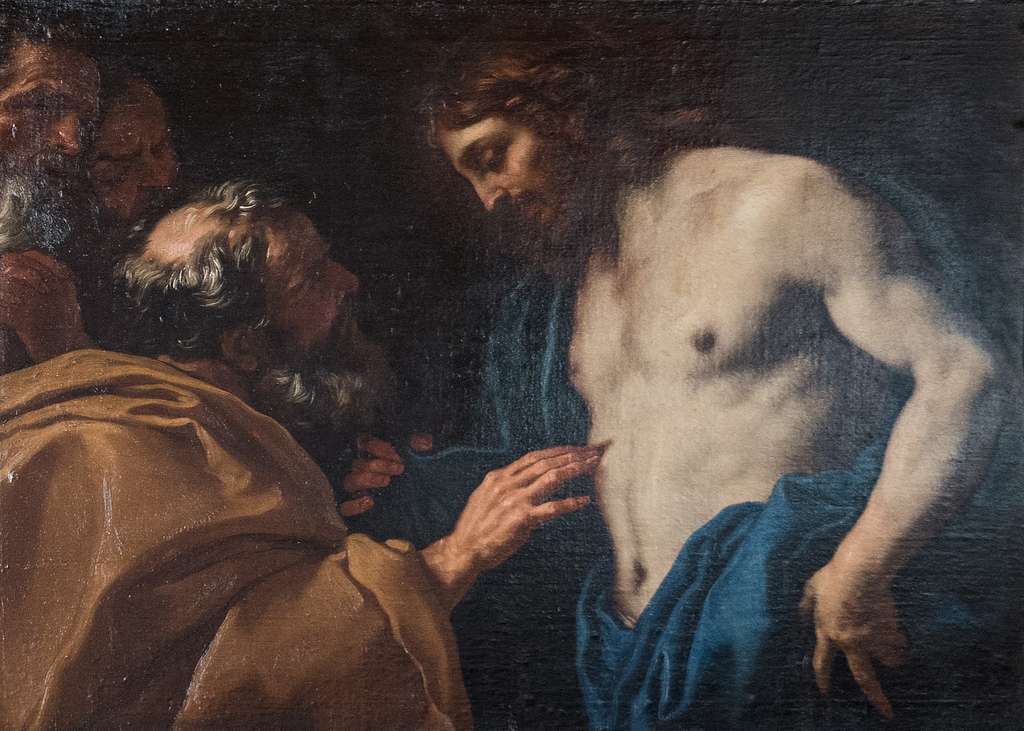Doubting Thomas
“Have you come to believe because you have seen me? Blessed are those who have not seen and have believed.” (Jn 20:29)
The Apostle Thomas is often referred to as “Doubting Thomas,” but is this really fair? When Mary Magdalene finds the empty tomb, she runs to tell the Apostles. The response? Peter and John run to the tomb –– they have to see it for themselves. Once they see the empty tomb and the face cloth rolled separately (signifying that He would be back), then they believe.
When the 10 Apostles are together, Jesus appears to them, shows them His wounds, and breathes on them, saying, “Receive the Holy Spirit.” It is this act that leads the Apostles to understand the Resurrection, but Thomas isn’t with them. He doesn’t receive the signs and the Holy Spirit as the other Apostles do at this time. Is it any wonder that he remains in the state of incomprehension that the other Apostles had also been in prior to seeing the Risen Christ? (Mk 16: 11, 13)
We fail to appreciate what Thomas grappled with. He has seen Jesus raise Lazarus from the dead, but the idea of Jesus raising Himself from the dead is beyond Thomas’s understanding. We believe because we have the benefit of the Holy Spirit, the gift of Baptism, and 2000 years of Church teaching, with each generation of saints and doctors of the Church diving deeper into understanding and building on what came before — and we have Thomas, who put his fingers into Christ’s side and verifies that He is not a ghost, but fully alive in His Glorified Body.
We often fail to peel back the layers to contemplate the deeper meaning of Jesus’s response to Thomas. He doesn’t appear in anger or condemnation. He loves Thomas and is not willing to leave him in the same state the other Apostles had been in prior to His visit. He wants Thomas to have the gift of the Holy Spirit too. He has great plans for Thomas. He willingly offers the proof Thomas needs. When Thomas is greeted with such unconditional love, he knows he’s in the presence of Jesus. It is this great love that transforms Thomas just as it transformed the other Apostles.
Because Jesus is willing to meet Thomas where he is, as he is, Thomas ends up spreading the Gospel all the way to India. Thomas’s questions don’t phase Jesus; Our Lord wants him to understand and Thomas for his part comes with an open heart, willing to be taught. Thomas is truly a sign of hope for all of us. We too often struggle to understand the ways of God, and in our struggles God does not abandon us either. He meets us where we are, as we are. If we approach our questions with an open, sincere heart, willing to accept God’s timing with patience and humility, we can enter into contemplation of the divine. It is here that we, like Thomas, move beyond simply touching His side; we are drawn into a deeper relationship with Him that strengthens our faith as we place ourselves in His presence and allow ourselves to be transformed by His tender, merciful love.


